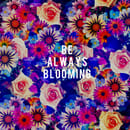Disclaimer: This article discusses sexual harassment and assault.
Let me begin by stating that I wholly support the #MeToo movement currently sweeping Facebook and Twitter. If you don’t have any social media (or just haven’t been paying attention), I’ll quickly sum it up for you: in support of people coming out as survivors of sexual assault/harassment perpetrated by Hollywood mogul Harvey Weinstein, women and other femme-identifying individuals (as well as men and non-binary folks) have been tweeting or posting as their status the two simple words “Me, too” to indicate that they, too, have been subject to unwanted sexual advances.
The number of statuses and tweets is stifling even for me, a feminist who considers herself pretty well-educated on the statistics of sexual assault. In the past, I’ve noted to friends how disturbing it is that sexual assault is a thing women can bond over—that it is so easy to build a friendship up from the common foundation of having been taken advantage of. The number of women and femmes now coming forward to declare that they are also a part of this sadly existing community just confirms what those of us who are survivors already knew—that unfortunately for female-identifying people everywhere, we are not alone.
When I first noticed the movement, I was ecstatic. I immediately went to post my status as well. I typed the two little words, I pressed “Post,” I scrolled through my feed a bit more, trying to ignore the sick feeling that had begun lurking in the pit of my stomach. Was this what empowerment is supposed to feel like? Four minutes after I posted the status, a girl I haven’t spoken to since tenth grade liked it, and I began to really panic. Six minutes after posting, I deleted the status before anyone else could see it.
My therapist says that this is a common phenomenon: caught up in the passion of the moment, whether it be on social media or at something like a Take Back the Night rally, survivors often come forward with their stories even when they’re not ready to. By adding their voices to the already existing chorus, they feel temporarily empowered, but when the movement dies out—as this one likely will in the next week or two, even though it shouldn’t—they regret coming forward. They become afraid people view them differently, that rather than being defined by their person they are now defined by their experience. They fear being viewed as weak. As a victim.
Me, too. I’m afraid of being viewed as weak. As a victim.
Even though logically I know coming forward with my own survivorship is strong and brave, and I really admire people who are able to do it, I know I’m still not ready to have my sexual assault out in the open.
And that’s okay. As survivors, we don’t owe anyone our stories. The fact that sexual assault and harassment are not taken seriously in our society without us coming forward is problematic. What’s not problematic is people feeling like they have to come forward in order to be part of a movement. By continuing to function and exist in this screwed-up world as a survivor, I am part of the #MeToo movement. Hell, I am the movement. And if you’re a survivor and you’re reading this, you’re the movement too. Your strength lies not in tweeting or posting a status, but in getting to decide for yourself whether you want to share your story.
What survivors DON’T get to decide is whether or not they are survivors—whether or not they have faced trauma, whether or not that trauma is carried with them for the rest of their lives. What they DO get to decide is how they retake their power from their abuser. For some, that’s telling their story. For me, it’s writing this article about how you don’t have to tell your story if you’re not ready yet.
Every survivor is invaluable to the movement. Including me. Including you. Please don’t forget that.


